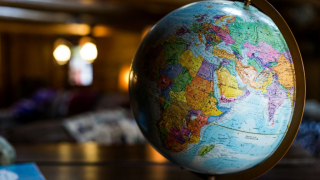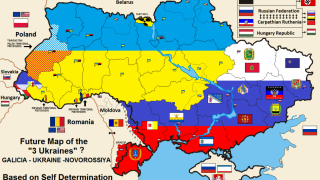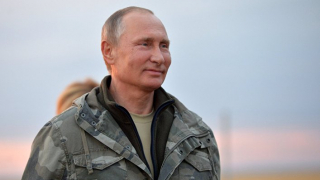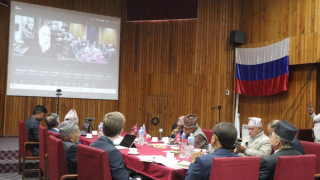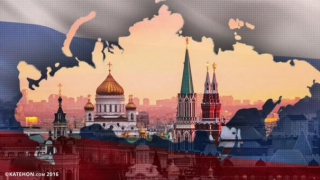New State
Analysis of the Russian Government’s resignation and commencement of work on constitutional changes
Analyzing the political transformations taking place in Russia, we can take the following as starting points:
1. Medvedev's government resignation;
2. The call for a number of changes in the Constitution that will affect the distribution of power among the existing authorities;
3. The new meaning and political weight of the State Council.
With the proposed changes, the President of the Russian Federation has struck a blow against the central elements of stability in the state model he has worked to create for more than twenty years.
From the very beginning, Putin had assured stability by:
- maintaining staff continuity and avoiding sharp decisions on personnel (in order not to provoke opposition démarches such as the sharp excesses involving former Prime Minister Mikhail Kasyanov, government advisor Andrei Illarionov, the short-term démarches of Dmitry Rogozin, etc.).
Now, however, the entire government has resigned, and not as a result of new parliamentary or presidential elections. The resigned ministers prospects are not yet clear, which is a large factor in the tension.
- The immutability (with the exception of technical changes) and integrity of the 1993 Constitution, the guarantor of which has always been Vladimir Putin himself, even at the cost of refusing re-election for a third term from 2008 to 2012.
The proposed changes concern the restructuring of the entire political structure, i.e. they are of a fundamental rather than technical nature, which removes the taboo of the inviolability of the Constitution. An expert commission has even been established to prepare and discuss the changes Putin introduced.
- Concentrating the maximum amount of authority in one person’s hands, the so-called “vertical power” of President Putin had been the byword throughout his tenure in power, further strengthening the authoritarian nature of the political structure of Russia created by liberals under the "reformer" Yeltsin.
There is now an obvious trend towards the dispersion of power and the weakening of the president's figure, with some political influence being transferred to the Federation Council, the State Duma, the Constitutional Court and even the State Council (formerly a decorative body designed to compensate for losses resulting from the withdrawal of regional heads from the Federation Council), whose status is to be written into the Constitution.
The logical conclusion is that Putin’s political reform is aimed at weakening the entire political system of the Russian Federation through decentralization (despite centralization being an integral feature of the Russian political culture), creating interdependence among the main branches of power through the introduction of a mutual control procedure, which will be written directly into the Constitution. However, the first step toward formal decentralization was taken already in 2012 with the return of gubernatorial elections.
In proposing these changes, Vladimir Putin struck a blow to the legitimacy of the authoritarian structure: a structure not of his making (it was created by the liberals in the 1990s), but which he took full advantage of after coming to power. From a formal point of view, he met the liberals in Russia and the West as a whole where they are at, leaving his successor to govern a country with a dispersed and poorly articulated structure.
Putin in foreign policy: the Russian subject
It has long been noted that Russian President Vladimir Putin is much weaker in domestic politics than in the foreign policy arena, where he has achieved great success in restoring Russia's geopolitical subjectivity and influence on world processes. In fact, over the past twenty years, Vladimir Putin has become the number one politician in the world, given the constant rotation of the heads of Western states (who claim global dominance) and having seen three rulers come and go in China, one of the three most important countries in the world today. Throughout all of these years, Putin has been consistent in:
- restoring Russian subjectivity and sovereignty by responding to sporadic challenges from the West (the war in Chechnya; the war in South Ossetia; the accession of the Crimea after the loss of Ukraine);
- achieving decisive success in the fight against the ISIS in Syria, thus dramatically strengthening Russia's role in the Middle East and the world at large;
- laying the foundations for a multipolar world order by establishing rapprochement with China, inviting India and other countries to join;
- creating an alliance with Iran and Turkey, allowing Moscow to actively influence geopolitical processes within the Islamic world, including strengthening contacts with Pakistan;
- supporting the Maduro government in Venezuela by preventing the US from conducting a regime change operation;
- creating the prerequisites for Russia's return to Africa, where Western influence is rapidly diminishing;
- and formally patronizing Eurasian integration.
Together, all of this fits perfectly into a clear, realist strategy with elements of multipolar theory and a moderate version of Eurasianism.
The rationality and integrity of Putin’s efforts in foreign policy can be fully explained by the meaningfulness of the rules of foreign policy themselves, placing him in the rational system of international relations built by the West. In essence, he responds to objectively existing challenges, which, in turn, fit into the geopolitical structure of major trends in world politics. These trends are not arbitrary and have their own clear systematization and algorithms. In an effort to preserve and strengthen Russia's sovereignty, Putin - perhaps, forcedly - is behaving as a subject of geopolitics, although this subjectivity is most likely greatly exaggerated by external observers who mistake "reactions" for "planning." Hence Putin's "demonization" in the West (where he is considered personally responsible for all failures in the formation of a global hegemony) and his tremendous support on a global scale among those dissatisfied with the unipolar world and Western hegemony. In general, Putin's response to these challenges is in line with the dialectic of the natural confrontation between Russia and the West. Since the challenges themselves are quite rational and structured, the responses to them are more or less consistent and fit into clear rules. Here, Putin's success is in many ways predetermined by the fate of the West itself, which is losing its leadership and is no longer capable of remaining the only force governing mankind, but is also incapable of voluntarily giving up this role. Western hegemony is collapsing (partaily for internal reasons), and the West has declared Putin to be the responsible party. He has no objection to this: while he receives the expected blows, he is also awarded the dividends.
The situation is slightly different in the domestic political system, where no coherent, integral, ideologically sound strategy has been developed throughout the entire Putin period. As is the case in his foreign policy, Putin's response to domestic challenges is inconsistent because the challenges themselves are inconsistent. Some of them are inspired from the outside, from the West, some are the result of internal contradictions, some are the result of natural outbursts by the masses, irrational and incomprehensible to Putin in their essence.
Putin in domestic politics: timid authoritarianism
Vladimir Putin's internal legitimacy is far more problematic. On the one hand, he makes full use of the entire arsenal of patriotic rhetoric and the indisputable strengthening of Russia's subjectivity under his rule gives him objective reasons to do so. From time to time, he confirms his patriotic expectations with concrete steps: from victory in the Second Chechen Campaign to reunification with the Crimea. Putin has refreshed the image of a sovereign ruler, and his demonization in the West helps him in many ways. It is precisely because of the patriotic content of his foreign policy that Putin receives a substantial amount of trust in his domestic politics, the economy and the social sphere. Moreover, it is the "external image" of Putin's patriotism that is always the decisive argument for those who pay attention to this or that flaw in domestic politics, such as:
- the pathological level of corruption;
- the retention of liberals in power in the economic sector;
- lack of industrial or high technological development (beyond the defense sector, where real success cannot be measured due to secrecy);
- complete absence of social justice;
- the appalling state of the ruling elite;
- a deep crisis of education, culture, science and society as a whole.
Each time, the argument that Putin has restored Russia's sovereignty (and that of the Crimea) to many--at least, to the masses--is the strongest argument in his favor.
In addition, support from the population is galvanically increased from time to time through one-off, "socially" oriented, patriotic-populist actions. But such PR is possible only if there is a layer of real legitimacy, which is indeed there, but which lies in the external, rather than internal politics. The masses do not focus on the domestic policy, which is more understandable and close, because of the influence of his success in geopolitics, which covers everything.
For the elites who were cynical, opportunistic and corrupt in the late Soviet period and the Yeltsin era (and partly Western-oriented in general), Putin was at some point also acceptable--he positioned himself above the battle between rival clans and served as a balancing point between the interests of different groups and offered a rational compromise between the "patriotic masses" and the economic elite, who, through personal loyalty to Putin, were allowed to retain their oligarchic assets and positions in the government--with things only slightly squeezed in favor of the former "security forces" who came with Putin from St. Petersburg.
Putin's legitimacy thus rests on numerous sources: support of the masses and the consent of the elites. In general, he has remained in such a high position all these years that he could theoretically create any scenario he wants for the so-called "transfer of power."
Putin has undoubtedly secured legitimacy on a large scale, and remains in power legally--at least until 2024. All he had to do next was to find a solution: either to prolong the legality of his rule by making an amendment to the law, reboot the state by creating a new structure of legality under his own legitimacy or to formalize his legitimacy in the form of an Idea and hand it over to a carefully selected successor.
Until recently--before his speech to the Federal Assembly--Putin was free. But then, the speech took place, the Medvedev government resigned and Putin announced the constitutional review. That is, he placed the legality of his government under question, as any changes to the Constitution in the ideologically stunned and unprepared Russian society can only lead to a weakening of legality--unless, of course, Putin gives his still existing legitimacy a new dimension and a new form. All that remains is to understand what this new dimension will consist of.
Scenarios for Putin
With such a high margin of legitimacy, Vladimir Putin would have been able to implement any of these scenarios until the last moment:
1. to remain in power for an indefinite period of time. This would require amending the Constitution, which was previously considered impossible (the experience of 2008-2012), but as we see now, the topic of amending the Constitution has been detailed by Putin himself, who, following the example of Lukashenko and Nazarbayev, could extend his powers through a referendum, even strengthening them by establishing a direct dictatorship. However, obviously, we are not talking about that possibility anymore. On the contrary, Putin has spoken out in favor of limiting the number of terms. In addition, he proposed shifting some of the presidential powers to abstract, non-personalized political institutions. In other words, Putin did not adjust the law to establish an unlimited term in office. That means he will not. At least one unknown element in Russia's political future can be crossed out.
2. There was also the possibility he would appoint a successor, taking a position as "father of the nation" without any definite status, or with a purely formal status. The possibility of this scenario is supported by the weakening of the political concentration of the president's powers (under a future, weaker successor) and the increase in the status of the State Council (under Putin's own departure). However, removing a strong figure from the first position will lead to the aggravation of inter-clan contradictions, and if Putin loses his formal status of leader, he will also lose his actual power, because in Russia formal status is a determining factor (again, a consequence of Russian political culture).
In addition, by dividing vertical power between several branches, Putin will put Russian statehood itself at risk, as evidenced by the experience of the 1990s. One can say that the implementation of this scenario means nothing more than the political liquidation of the Russian Federation. One system is sharply weakened, and the other is not even proposed. In Russia, and not only here, this is extremely dangerous. It is hard to imagine that for all of Putin's rationality which has allowed him to keep Russia stable all these years, he will indeed dare to undertake such a dangerous experiment. This is exactly the option that seems most likely now.
If the second option is the goal of Putin's decision, it is extremely dangerous for Russia, whoever its successor may be. In this case, by 2024, Putin will have sharply lost his legitimacy and the distinction between these concepts will have an even greater impact on the successor, whose legal powers have been diminished before his legitimacy is even acquired. Putin will be golden, but everyone else, including the country, likely won’t be.
3. Turning the State Council into the highest political authority.
It is clear that the State Council cannot gain real political weight: even if it is headed by Putin. Its legitimacy will be detached from legality, but its range will not be enough to extend that legality to a new, and essentially unconstitutional, body, which, even if written in the Constitution, will never receive full status in a democratic system. Putin has neither the will nor the ideology to abandon political democracy. That is why the State Council will be a group of "Putin's friends" who will be hated by everyone very quickly, and the legal structures will immediately start a war against them. In the State Council, Putin will turn out to be not the "father of the nation," but only an "authority," which is neither an usual nor an acceptable method of governance for Russia. Putin will no longer have time to introduce ideology under the State Council, as he has not made any attempts to do so in the previous 20 years, and now, even if such a decision was made, something extremely ugly, fake and unconvincing will follow. Ideology has its own rules, and Putin is not strong at it. Without ideology, this structure will simply not work, and everything will be turned over to his successor. But it will be Putin's successor himself who has put him in a position of limited power, which brings us back to the risk of decentralized governance and administrative chaos.
The first scenario is no longer a possibility, as there is a procedural problem in its implementation: the implementation of the "dictatorship" project would require serious changes to the Constitution, which, by law, will not do without the convocation of the Constitutional Assembly, which in fact means the adoption of a new Constitution and the creation of a new state system. Such a large-scale restructuring of the state is unlikely to meet the deadline of September 2020. Submitting these issues to a referendum is, firstly, too cumbersome, as there are too many of them, and secondly, their true meaning is completely unclear even to professional political scientists, not to mention ordinary bureaucrats, and even more so to ordinary citizens. Putin will have to pay for this dubious act, a part of his legitimacy, providing serious grounds for further attacks by the opposition. This “opposition” does not yet exist in Russia in the full sense of the word, but it will certainly appear in the process of such a risky action.
Leaving the former, and considering the second and third scenarios separately, or putting them together, in both cases we get an almost guaranteed period of turbulence in political history. Since Russia is in a rigid, geopolitically antagonistic environment, Putin’s plan amounts to the weakening of Russian sovereignty, which clearly works in favor of the West. However, no malice should be sought here: after all, if Putin wanted to liquidate Russia in order, for example, to give it up for a globalist project, he did not have to wait until his final term. With the concentration of power he had all those years, he could have done so at any moment: not responding to the West's challenge in the North Caucasus, in Chechnya; not supporting the reaction to Georgia's aggression in 2008; not responding to the Ukrainian Maidan and not returning the Crimea; not being indifferent to what is happening in Syria (as Medvedev did earlier with respect to Libya), and certainly not declaring the priority of the Russian Constitution over international law now. Obviously, Putin is not consciously aiming to erase the power of Russia, which he has increased many times during his rule. The most important thing for Putin has always been sovereignty. Yet, the political reforms that he announced logically lead to the opposite, to a dispersion of the center of power, to an increase in uncertainty and a blurring of legitimacy itself.
From a logical point of view, something doesn't add up. If Putin wanted to make concessions to the West, he would have done so long ago. But his whole policy was the exact opposite. Now, at the last stage of his rule, he either decided to cross out everything he had done before, or these political reforms are simply a prelude to some larger scenario which we do not yet know about.
A new state: the only consistent solution
Let's try to recreate a scenario that does not yet exist, yet stems from changes already taking place. They all make sense if Putin's goal is to create a new state by becoming its leader.
Summing up the proposals Putin made during his last federal message (where he proposed the dispersal of vertical of power and likely threatened the statehood of the Russian Federation as such) it is impossible not to notice that, with the degree of legitimacy he obtained during his time in power, he could have chosen to maintain power in any number of ways, up to the introduction of dictatorship. Given these facts, his decision appears to be wholly irrational. The only justification for the actual liquidation of the Russian Federation, which will be inevitable with the implementation of all proposed, is the establishment of a new state.
In his time, Boris Yeltsin initiated the collapse of the USSR, by urgently (and in violation of the law) signing the Belavezha accords, in order to strengthen Russia by throwing away the ballast of the already extremely weakened and disintegrating Soviet state. Yeltsin and the liberals surrounding him needed a strong Russia to destroy the Soviet Union. Even more, Yeltsin strengthened presidential authority in 1993 after the disbanding of Parliament, as liberals needed strong authoritarian power to carry out antisocial reforms.
Putin inherited a Russia strengthened by the collapse of the Soviet Union and the disbanding of Parliament, and made it many times stronger, eliminating claims to regional sovereignty, introducing federal districts and subjugating all major levers of government. Today, Putin began reviewing the Yeltsin Constitution of 1993. If he doesn't just want to weaken political centralism and wreak havoc after his last term, his reforms mean nothing more than a move to recreate a new union state. Yeltsin strengthened Russia in the name of the collapse of the USSR. Putin, it seems, has weakened Russia in the name of a new supranational union.
Here, we should once again emphasize that the implementation of the changes proposed by Putin (his departure from the first position, and the dispersal of political functions of power) will paralyze the political life of the Russian Federation, inevitably plunging the situation into administrative chaos and razing the structures of actual power. The reforms of Mikhail Gorbachev, who began decentralizing and redistributing power from Moscow to the Union republics, led to a similar result. Yeltsin's reforms (the crisis of 1993) brought about almost the same result: he concentrated power in his hands through blood, by having tanks fire upon parliament. Putin, with his political experience, cannot ignore the possibility of repetition of the same, with similar consequences.
Under these conditions, the creation of a new allied state is the only logical, rational way to resolve the changes Putin has proposed. There is indirect evidence suggesting the possibility of such a scenario (we cannot be aware of Putin's real plans: no one can be, as past experience tells us).
When we consider the situation from this perspective, the appointment of the new Prime Minister will become clear. The newly approved Prime Minister, Mikhail Mishustin, is clearly a technical, i.e. a transitional figure. The real prime minister of what will already be a new state will be the one who is the first among the leaders of the states to agree to join the new Union. As a matter of fact, no change of government was required to implement the first, second or third scenario. In the case of the “dictatorship” scenario, the prime minister’s personality would not have been important at all, since, under the absolute authority of Putin, who goes on to the next term (and so on to infinity) through the strengthening of his power through constitutional amendments, Medvedev could remain the head of government for as long as he wants. In the case of Putin's transfer to the State Council, Medvedev, who has proven his loyalty to Putin as prime minister more than once, together with a weak nominal president, would be the guarantor of Putin's own influence and security, at least for a period of time until the turbulence caused by the changes brought about would destroy the very statehood of Russia. But he has been removed. Who was he actually interfering with (everyone was just making fun of him and gloating)? And why get rid of him now, there seems to be no reason at all--Medvedev is always the same.
The algorithm of steps in building the "New State"
From the formal, legal point of view, a new union state may be established when any nominally sovereign entity enters it, regardless of its size or influence on the world arena. In the most extreme case, an application from South Ossetia or Abkhazia, which Russia recognizes as sovereign states, will suffice to create a new Union. This, by the way, largely explains why all these years, after the recognition of the sovereignty of South Ossetia and Abkhazia, Russia, despite all the requests, did not accept them in its composition. And even in this case, the establishment of a “new state” will formally take place, which guarantees this option against failure under any circumstances. Of course, this will create a storm of indignation . . .but then again, why do we have hypersonic weapons? To sober things up. Crimea has also caused a storm of resentment, but it is our territory all the same . . . and we could found a Union State as well.
Continuing on: the creation of an alliance with Moldova (taking advantage of the strengthening of pro-Russian sentiments) or Transnistria (the PMR is part of Moldova, Moldova is a part of the Union: in the most extreme cases, only the PMR would part of the Union, while Moldova would be encouraged to join. This version is only on the table if a pro-Western coup takes place in Chisinau).
Another elegant detail: the recognition of the independence and accession of the still unrecognised Donetsk People's Republic (DPR) and Lugansk People's Republic (LPR) to the Union. Here, the decision to expand the territory of the DPR and LPR within the borders of the former Donetsk and Luhansk regions of Ukraine becomes logically viable. The further liberation of the territory of these two republics (a "little victorious war") will give enormous legitimacy to the whole project, especially inside Russia. This, in turn, will provoke a powerful movement towards Russia and within the remaining regions of Ukraine, whose entry into the new Union would be encouraged through the return of the DPR and LPR to Ukraine itself (after the denationalization and complete rotation of the political leadership, in which the EU countries are primarily interested). Therefore, the new Constitution, as some political scientists suggest, may take Ukraine into account … just in case).
The dispersal of powers currently exercised by Putin can also be explained in terms of requirements of the main allies of the Russian Federation, integration with which, paradoxically, has not yet taken place: Belarus and Kazakhstan. It was the concentration of power and Putin's hypertrophied influence, primarily on the world stage, that could have turned the integration of Belarus and Kazakhstan into an actual takeover. Under the new conditions, the possibility of integration on a more or less equal basis becomes a reality. Hence, the increased probability of Belarus and Kazakhstan joining the new Union. This is, perhaps, the most serious dimension. We did not start all of this in order to show the legal ease with which one could declare a "new state” … even if Russia's partners in the Eurasian Economic Community, such as Belarus and Kazakhstan, refused. In any case (even the most unfortunate one), Putin's new Union State could be established, and, if Kazakhstan or Belarus enters it, no one will dare to challenge its seriousness. In any case, however, even if no one wants to, Putin will still be able to operate with a new political and legal reality open to other members. Of course, it seems, at least from the outside, that negotiations with Nursultan and Minsk have not been particularly successful. Then again, if we knew everything exactly as it is, Putin would not be Putin.
Further, with slightly less probability, but according to the same algorithm as with Moldova: there is a possibility for the entry of Armenia, or vice versa, the entry of Azerbaijan through Karabakh, and even the entry of Georgia under a new nationalist leader through the return of Abkhazia and South Ossetia.
The process of de facto reintegration of the post-Soviet space (especially if Kazakhstan enters) will also catalyse centripetal tendencies on the part of the rest of the former Soviet republics: Kyrgyzstan, Uzbekistan and Tajikistan.
The biggest problems will obviously arise with the Baltic States which are directly occupied by NATO. Here, the information and political concerns expressed by the political elites of these countries with regard to possible expansionist sentiments on the part of the Russian Federation become understandable (beyond the consideration of this reintegration project, they have not yet been substantiated at all). It is unlikely that the Baltic countries are threatened by Russia, but if we are talking about restoring the Union, then everything falls into place.
First the Union, then the ideology
This whole project will inevitably invoke a storm of criticism. But, given what is possible in post-Soviet space, and especially given that Putin has already taken the first step (albeit a very puzzling one) by proposing to change the Constitution (and not for himself!), such a scenario is, at least theoretically, quite possible. On a minimum scale (South Ossetia, Abkhazia) everything is already ready, while the other more fundamental options also have prospects. In any case, we are in the realm of possibility: unlikely, but possible.
In general, the implementation of this scenario (the creation of the New State) is a rational solution to many trends, both internal and external, that have been accumulating for years, creating an opportunity to overcome the difficult situation of the end of the legal term of presidency of Vladimir Putin with, not only the preservation of, but also, with a huge increase in the volume of its legitimacy, both internally and externally. Here, his legality again, and at a new level, coincides with his legitimacy, rather than being realized at its expense as in the first scenario, or going against it as it did in the second and third. Moreover, this will be a new legality, the layout of which does not necessarily take into account the legacy of Russian political history over the past 30 years: these were transitional years and did not bring anything particularly valuable from a legal point of view.
The implementation of this scenario also removes the problem of the lack of ideology, which has not been solved in all these years, because it is only through the state that Russians and other peoples close to them see the Idea of their existence, which directly results in further ideological nuance. In any case, even a step in this direction will already significantly enhance the legitimacy of both Vladimir Putin himself and any political structure proposed by him, securing the possibility of their legal implementation. The only weak point of the option of creating a “New State” is the sequence of events: first, the liquidation of the Russian Federation, and only then the establishment of a new state. Here, Putin acts in his own way, like a lawyer, establishing a new legal entity only after the liquidation of the old one.
Thus, in evaluating the changes that are taking place without access to the true idea behind the current transformations, these three options that have arisen from monitoring current processes seem to be the most logical so far.
International "Eurasian Movement" / Center for Conservative Studies


